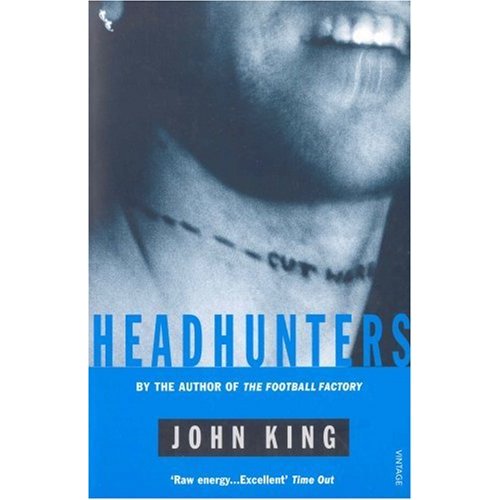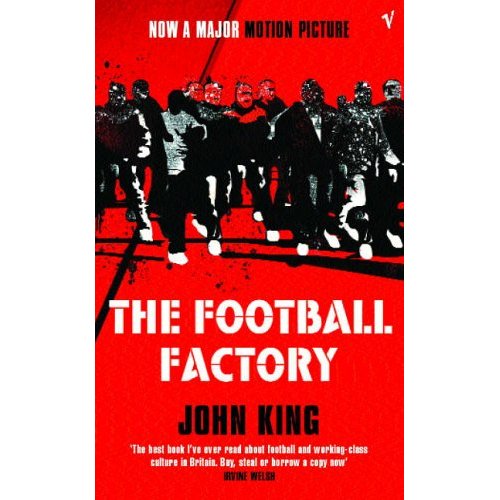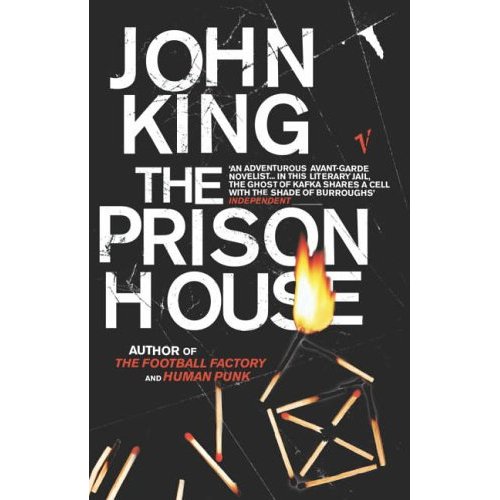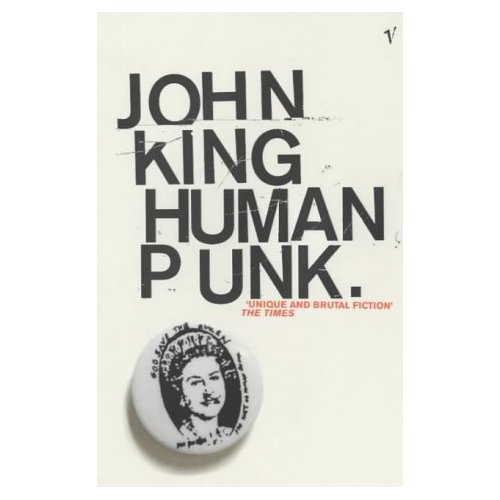�Skinheads scrubbed up well. It was in their blood to hate dirt and failure, reject weakness. It was right what he�d thought earlier. Skinheads were maintaining the standards set by their fathers, men who understood the importance of staying clean and looking your best, the need for an ordinary lad to try his hardest in life. Skinheads were an example of Britain at its finest�.
Ouch, no grunge, then? No Vicky Pollards, I presume� No Britons struggling to live just above the poverty line? No hippies with long hair, no ugly women with broken nails�
I had two skinheads� friends in Spain, in my early twenties. Friends of friends, I rush to explain. They were two quiet and sweet lads, very tall, booted in Doc Martens footwear and dressed in black; they didn�t talk much and seemed to mind their own business. Commenting this to another girlfriend one evening, she reflected out loud �yeah, they�re sweet and quiet with us, girls, but I wouldn�t want to see what they�re up to when they get drunk and they�re in the company of people they don�t respect.� I had to agree to that.
John King�s novel gives us a passionate insight into what feels to be a skinhead in 21st century Britain from the point of view of the owner of a taxi cab company, Terry English, a quiet man who lost his wife to cancer ten years ago and who lives now for his job and his children, and of his nephew, �Nutty� Ray English, a mass of badly self-contained anger which he lets rightly loose several times along the story.
King shows that the violence these two men are capable of inflicting on someone else is only of the right kind, for instance, when Terry threatens with a gun the man who wants to sell a piece of land close to Terry�s home which holds very dear memories to him, or when his nephew Ray beats up three drug dealers who have been selling ecstasy to his eleven-year-old daughter.
Skinhead violence is seen as justifiable in the book when disguised as the righteous consequence of bad men�s actions. But� is it, one that has never resorted to it, wonders.
Both men, Terry English and his nephew Ray, wander through the novel trying to mend broken homes: Terry still grieves for the wife he lost ten years ago in some memorable passages, and Ray has been kicked out of his house by a wife who is fed up of his temperament. They are clearly lost men in search of some lost paradise that they think they owned in the past. Terry finds it in a pub he has bought and re-decorated, calling it The Union Jack, and in Angie, his pretty employee; Ray manages to be forgiven and comes back home.
So all ends well, and the message that King seems to convey throughout the book is that family values, the love for your own country and the ethics of hard work are timeless sentiments which anyone and everyone, including members of the British skinhead culture, is allowed to praise and defend in its own way. Clearly, no buts to that.
��and he still feels like an outsider even though he�s in his car, early enough for most of the shops to be shut, the pavements quiet, grocers starting to set up, and he doesn�t really hold it against those boys, knows they�re mugs like anyone else, going on appearances and the colour of his skin, a race attack on a handful of white boys, there�s skinheads who are cunts, of course there are, but the skins he knows are decent people, honest people, and it�s the same everywhere, if you�re a different colour living in a white town there�s going to be a lot of paranoia, he can�t see it ever changing, everyone needs their identity�, Oh yeah, even the lot of us, whites/non-whites living in a country not of their own, who have made of our non-identity, of our strangeness, another sort of uncomfortable, unexplainable and unmistakable identity, really.
� Raquel Moran
Reproduced with permission
Raquel Moran was born in Asturias �Spain- the last year of the sixties, and she is so grateful to Mum and Dad for it. She studied Geography at the University of Oviedo and she went to London in 1996, officially, to study History; unofficially, to become a �serious� writer. Eleven years on, she is still living somewhere in London with her partner and her daughter. She earns her living teaching French and Spanish to unruly secondary students and she is still trying to forge a steady and sound career as a �serious� writer. She does write mainly in Spanish, her mother tongue, and so she considers herself an heir to Cervantes, Cort�zar and Vargas Llosa, among others. She is currently in the process of self-publishing a novel titled Apolo y los centauros �www.trafford.com- and she is also working on her fourth novel, No Smoking, which will be completed, hopefully, before 2010. Hopefully.

© 2009 Laura Hird All rights reserved.
|




